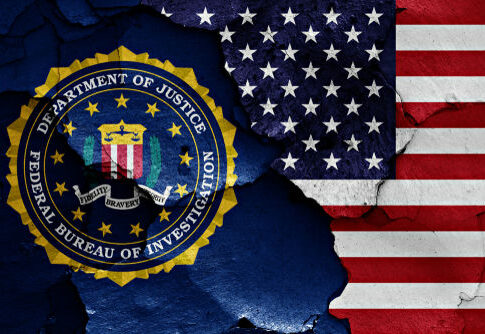After years of political retaliation and lost livelihoods, FBI whistleblowers are finally nearing justice as their security clearances and back pay move closer to restoration—a major turning point for accountability within federal law enforcement.
Whistleblowers Face Retaliation for Exposing Misconduct
During the Biden administration, several FBI special agents—including Stephen Friend and Garret O’Boyle—came forward to Congress with allegations of internal misconduct and politicization within the Bureau. After testifying, these agents found themselves stripped of their security clearances, effectively removed from their roles and left without pay for extended periods. This tactic, critics argue, amounted to political retaliation, weaponizing security protocols to silence dissent and discourage transparency within the agency.
These whistleblowers endured not only professional exile but also financial hardship, as clearance suspensions left them in “unpaid limbo” for more than two years. Despite existing protections under Presidential Policy Directive 19 and related statutes, the process for appealing retaliatory actions proved slow and inconsistent, exposing the vulnerability of federal employees who speak out against potential abuses. The drawn-out legal and administrative appeals underscored the need for stronger safeguards and timely resolution to prevent further injustice in similar high-stakes national security environments.
Congress Responds: Bipartisan Push for Reform
Mounting public scrutiny and congressional hearings brought these cases to the forefront, driving lawmakers to act. In August 2025, a bipartisan group in Congress introduced new legislation aimed at fortifying whistleblower protections within the FBI and related agencies. Senators Chuck Grassley and Gary Peters have led the charge, condemning clearance suspension as a form of retaliation and advocating for reforms to close loopholes that allow agencies to sideline whistleblowers without due process. The proposed legislation reflects a growing consensus that existing laws have failed to protect those who risk their careers to expose misconduct, and that meaningful reform is essential for agency accountability.
Legal advocacy groups like Empower Oversight and the Government Accountability Project have rallied behind the whistleblowers, providing representation and amplifying calls for oversight. Their involvement has ensured that these cases remain in the public eye, holding agencies accountable and pushing for administrative transparency. Public hearings by House and Senate committees have further validated the legitimacy of the whistleblowers’ claims, with bipartisan agreement that corrective action is overdue.
Implications for Federal Accountability and Constitutional Rights
The outcome of these cases has far-reaching consequences beyond the individuals involved. In the short term, the expected reinstatement of security clearances and back pay will bring long-awaited relief to the affected agents and their families. More broadly, the legislative momentum underscores the importance of strong checks and balances within powerful federal agencies. If successful, the reforms will help deter future retaliation, foster a culture of transparency, and reinforce the principle that no agency—regardless of its mandate—stands above the Constitution and the rights of American citizens.
Whistleblower agents moving closer to winning settlements from FBIhttps://t.co/AhrDahpIM7 pic.twitter.com/0lb4D1aiKn
— The Washington Times (@WashTimes) August 25, 2025
While some critics caution that expanding whistleblower protections could complicate agency discipline or national security operations, most legal and advocacy experts agree that robust safeguards are essential to prevent abuse of power. Bipartisan consensus and support from established organizations lend credibility to the movement for reform, which seeks to restore faith in federal law enforcement and defend the rule of law. The final resolution of all whistleblower cases remains pending, but the progress made in 2025 marks a critical shift toward greater accountability and respect for constitutional values.
Sources:
FBI Whistleblower Appeals: Security Clearance Retaliation, Seeking to End 30 Months of Unpaid Limbo
FBI Agents Would Get Increased Whistleblower Protections Under Bipartisan Bill


